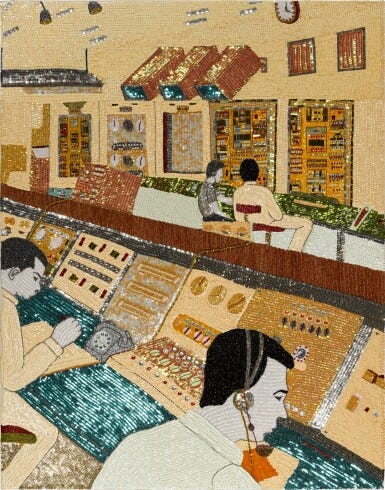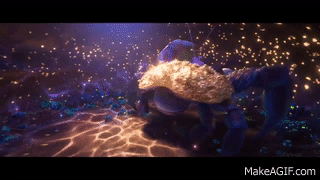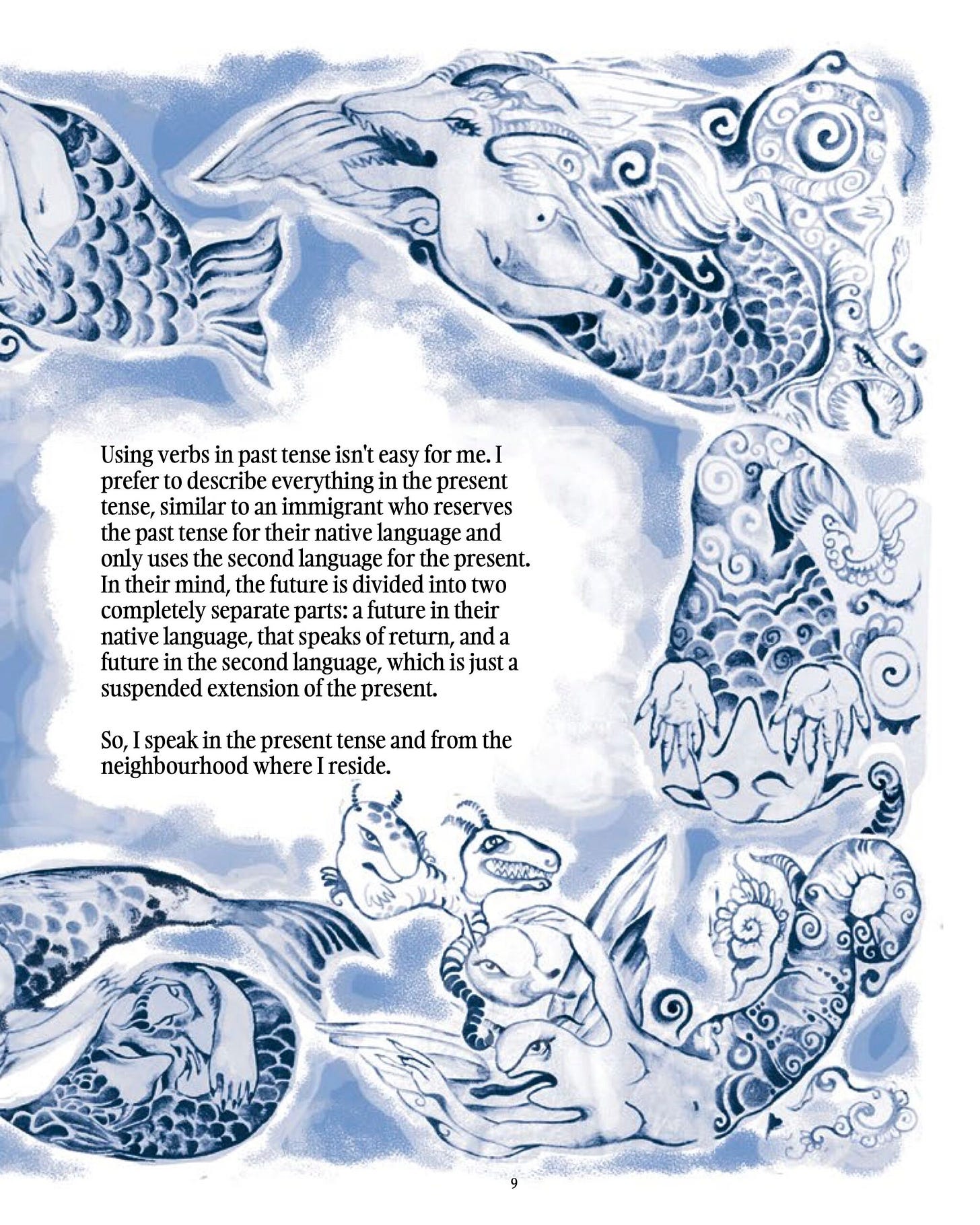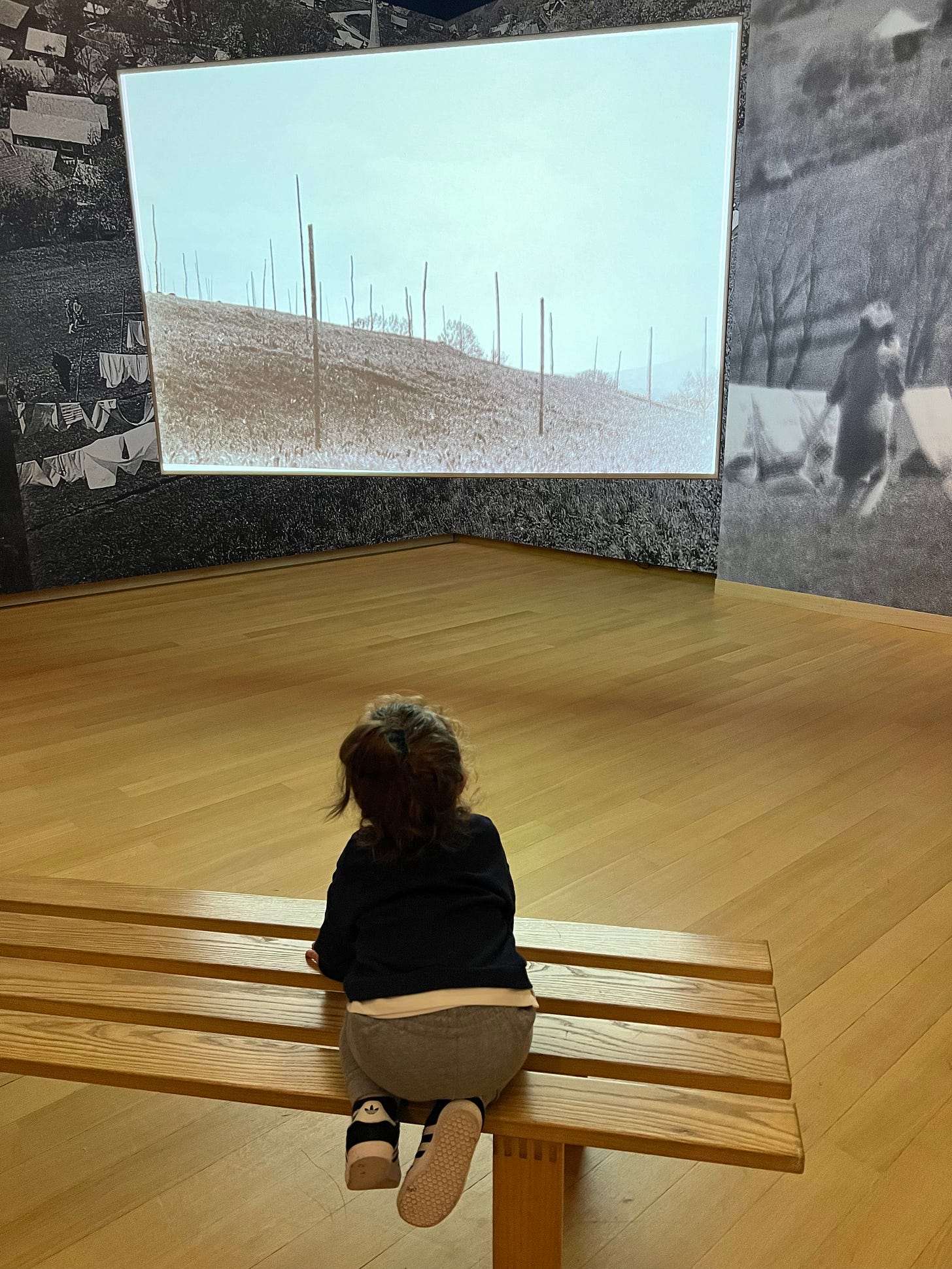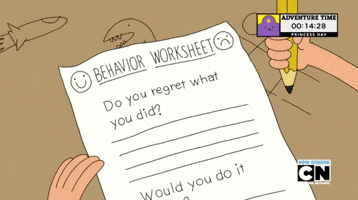Summer 2024 tête-à-tête
Time to get messy & get bratty, Tomatoa vs Moshir, language and Ngũgĩ wa Thiong’o’s Decolonising the Mind, new artwork by Wura-Natasha Ogunji, & useless parenting advice
Azul felawen,
We are off. New month, new tangents, and meanderings.
Latest obsessions in my house:
Jus d'orange ta3 tchina
Dark chocolate covered rice cakes
Moana/ Maui/ Heihei (in that order)
PAMMTV, the new streaming platform from Pérez Art Museum Miami, highlighting video works and the evolution of media art from Miami, Mexico, Colombia, Haiti, Trinidad and Tobago, Chile, Jamaica, Brazil, Guadeloupe, French Guiana, St. Maarten, Guatemala, Cuba, and beyond.
Camions - en particulier les camions poubelles
Lightning McQueen
Happy summer - we’re at the point where everyone is talking about how short summer feels. Lean into it.
Let’s get going:
RIP Farhad Moshir
In sad (︶︹︺) art news world, Farhad Moshir, one of Iran’s most influential contemporary artists, died on July 16. He was renowned for his fusion of Persian visual traditions and Pop art taste. His artwork is often constructed of embroidery, a craft traditionally reserved for women, which he adopts and reappropriates the practise. His work sparkled, literally: beads, glitter, and faux gems often embellished his figuration, subverting subtleness with a levity.
His artwork reminds me of Tamatoa in Moana, in the ripper of a song ‘Shiny’ - both Tamatoa and Moshir surpass the confines of pure aestheticism with playful irreverence and layered meaning, playing with the codes of modernism while developing a flamboyant iconography. Hit them with the extravaganza, ma puce.
Tomatoa says: “I was a drab little crab once | Now I know I can be happy as a clam | Because I'm beautiful, baby.”
Moshir said: ‘My mission in life was always to escape reality, and art was going to be my ticket.’
Sometimes a practice, appearing as playful and decorative, actually offers the most critical narrative beyond the shimmering surfaces - or am I reaching? Either way you see the link now, don’t you?
Welcome to the world offered by my Moana-tinted glasses.
Language Notes.
So, in personal news my son is moving past babbling and is now combining words to form simple utterances (you know shit like - push truck; play cars). Apparently, at this age their speech is 50% intelligible to people who don't know them well; except in my kid’s case it is three languages he’s mixing so his sentences are literally “سَوْق the vert voiture” so no one can really understand the homie but he’s starting to figure out درج is for me and “stairs” works better for his dad. This is not a flex at all, this is rather insight on language and how the human mind makes sense of things - it’s so wild to observe, which also leads me to this one hell of an article by Shougat Dasgupta on the idea of mother tongues and how complicated linguistics are, something that Golrokh Nafisi and Ahmadali Kadivar graphic story Walvistraan: A Love Story in a Time of Extinction and Isolation focus on - themes around resilience and unity of its inhabitants – human and non-human – amidst the forces of modernity, as they reclaim connections to their land of origin and history and language.
But going back to the article, Dasgupta takes on how his parents were beholden to their history (they’re from India), but for their children they chose a course “unimpeded” by history, by context, fixating on the idea that the Anglophone West was where their children would make their futures meaning that in practice their children were witnesses to their culture, but weren’t participants. Ngũgĩ wa Thiong’o’s Decolonising the Mind gives context to their behavior; makes sense of the choices they had made. The effect of imperialism, Thiong’o wrote, is to make the colonized see their past as a wasteland of non-achievement and it makes them want to distance themselves from that wasteland.
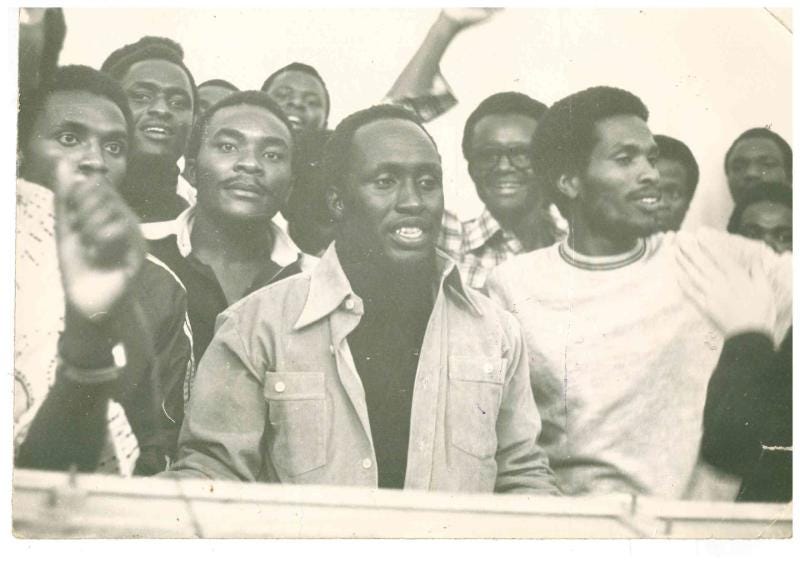
Thiong’o, himself, writing about his life in Kenya, makes the distinction between the Gĩkũyũ he spoke as a child and the English that was thrust upon him at his colonial school. “The language of my education,” he writes, “was no longer the language of my culture.” If the “bullet was the means of the physical subjugation,” Thiong’o recognized, language “was the means of the spiritual subjugation.”
African writers, Thiong’o argued, were making a choice when they wrote in the colonizer’s language. They chose to enrich English, say, or French, at the expense of their mother tongues, effectively shrinking their own mental universe while expanding colonial dominance. For years, he’s advocated for African writers to write in their mother tongues, understanding how integral language is to culture and identity.
Colonial forces want what you produce, not who you are. Investing in what is inherently yours, not what has been falsely given back to you (ahem museums in general tbh) and finding a more equitable exchange with others on the basis of equal give and equal take is crucial to create new worlds, systems, structures, all of it.
But the road to decolonize and to indigenize is long and complicated and barbed.
Dasgupta goes on to say that the “masters my parents were serving when they chose to effectively disinherit me from my linguistic birthright were not literally the British, but the colonial legacy was present in global systems of capital and trade.” Arguing that achieving fluency in the colonizers’ ways was the surest path to worldly success.
And they are right.
English language allows a certain itinerancy, more optimistically described as cosmopolitanism, which in turn helps secure a place among the global bourgeoisie, that spectral class that moves ceaselessly from city to city, living more or less the same way in each, a comfortable income a buffer against any discomfiting encounters with geographic and cultural specificities.
Dasgupta goes on to says “I am undeniably the misshapen, misbegotten product of colonialism and globalization, educated and prepared for a world in which a certain group was free to flit across boundaries of country and class as the blissfully ignorant servants of late capitalism” and this resonates. #itsme,imbabyservant
Awareness of this, does not mean that there is a clean road. If you have no mother tongue and no motherland; are you more free? Belonging nowhere and everywhere? Maybe yes. Maybe no.
Dasgupta talks about finding himself adrift in a world; unable to be authentically Indian.
Now that ….broke me. He later claims it was profoundly misguided and I agree. There are innumerable ways to be authentically whatever the hell you are.
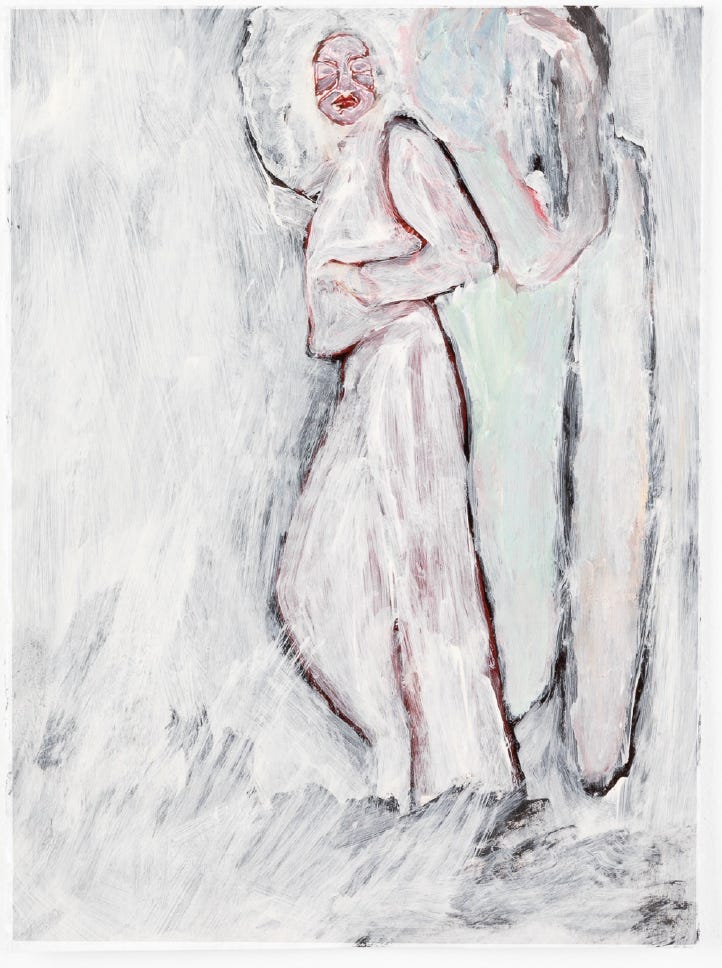
There are no right answers here, we are all making it up as we go along; be gentle.
Speaking on gentleness, last week, I came across the work of Sara Blokland (Dutch Surinamese) when I was wandering around the Stedelijk Museum. Blokland is a visual artist, independent researcher, and curator whose work examines the ambiguous relationship between photography and (post)colonial cultural histories. This particular artwork tore me open, reminded me of why I dedicate everything to the ones who made ghorba ( غربة ) home and not only survived, but thrived. It also relates to the notes on language from above, zoom in and read - it’s worth your time:
We also spent some time at the On This Side of the River Elbe exhibition which is the first comprehensive overview of the oeuvre of Ana Lupaș’s work (1940, Cluj-Napoca, Romania). Lupaș epitomizes the need to create, regardless, in spite of, and despite of.
Her installations/ ‘actions’ are incredibly profound, albeit dense AF- she has series of works and projects she produced with the engagement of local communities, really honing in on her commitment to intertwine art with local traditions, rituals and narratives. All of her art work is around the exploration of history and identity and meaningful engagement with the landscape, natural materials and local communities.
And on that note on meaningful engagement, creation, and community, the last bit of personal news:
هاي بالمغرب
Got me feeling so wavy
North African sunsets
On my mind lately
Packing up our life in Australia last month was a nightmare, I was happy to get rid of clothing, but I can’t shake books, carpets, and trinkets. Any regrets buying any of that shit over the years :
Catch us in ⵜⴰⴳⵍⴷⵉⵜ ⵏ ⵍⵎⵖⵔⵉⴱ, baby dolls. Wish us luck. It’s time for new adventures.
Last Thought:
I don’t follow much parenting guidelines because I think most parenting advice is worthless, we all know that a large proportion of the Parenting Industrial Complex isn’t about kids — it’s about generating content for nervous parents who feel like they should be doing something, anything; but I do enjoy Making It Work by Youngna Park. She writes on summer in her most recent newsletter, describing the season as ‘maximally maximal’ and I felt that as a summer child, and “that some point without noticing, but probably because of having kids, I let go of trying to seem like I could keep it together” which I am here for. As you can see the overall theme of this newsletter is get messy, get bratty, whether you have children or living your best child-free life.
As always, grass down. Drink your water. Eat some watermelon. Squeeze out summer. I’m rooting for you.
All my love, as always, see you next month.
Wided
xo
As always, Free Palestine.



